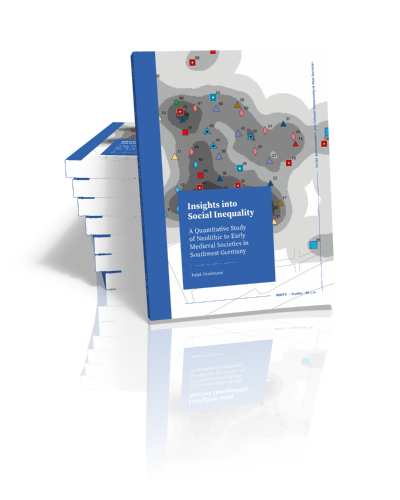Dr. Ralph Grossmann
Ralph Grossmann is currently a Postdoctoral Fellow of the Excellence Cluster ROOTS at Kiel University and he is a member of the Subcluster Social Inequality. From March to August 2020, he held a position as a deputy scientific coordinator of the Excellence Cluster ROOTS. He was a member of the Graduate School ‘Human Development in Landscapes’ from 2010 to 2018 and obtained his doctoral degree in philosophy in 2016 at Kiel University with an analysis on Corded Ware and Bell Beaker burials in the German Rhine and Saale regions. He completed his Master of Arts degree in 2009 at Würzburg University analysing social structures based on Early Bronze Age material cultures. From 2005 to 2006, he spent two Erasmus semesters at Uppsala University in Sweden.
Key publications
Großmann, R., 2020. Corded Ware and Bell Beaker between Rhine and Saale. Theories, Methods and Results. In: J. Müller and A. Ricci (eds.): Past Societies: Human Development in Landscapes. Leiden: Sidestone Press, 69–80.
Großmann, R., 2016. Interrelations between Corded Ware and Bell Beaker? Material Cultures and Identities in the 3rd Millennium. In: M. Furholt, R. Großmann, M. Szmyt (eds.): Transitional landscapes? The 3rd millennium BC in Europe. Proceedings of the International Workshop “Socio-Environmental Dynamics over the Last 12000 Years: the Creation of Landscapes III (15th-18th April 2013)” in Kiel. Human Development in Landscapes 9. Bonn: Verlag Dr. Rudolph Habelt GmbH, 129-142.
Großmann, R., 2016. Das dialektische Verhältnis von Schnurkeramik und Glockenbecher zwischen Rhein und Saale. Universitätsforschungen zur prähistorischen Archäologie 287 (Human Development in Landscapes 8). Bonn: Verlag Dr. Rudolf Habelt GmbH.
Books by Ralph Grossmann
Insights into Social Inequality
A Quantitative Study of Neolithic to Early Medieval Societies in Southwest Germany
Ralph Grossmann | 2021
Social inequality is a subject of contemporary concerns. Life capabilities and the access to resources vary significantly in rich and poor countries, between elites and others. Furthermore, inequalities based on bio-anthropological and non-bio-anthropological causes are…






